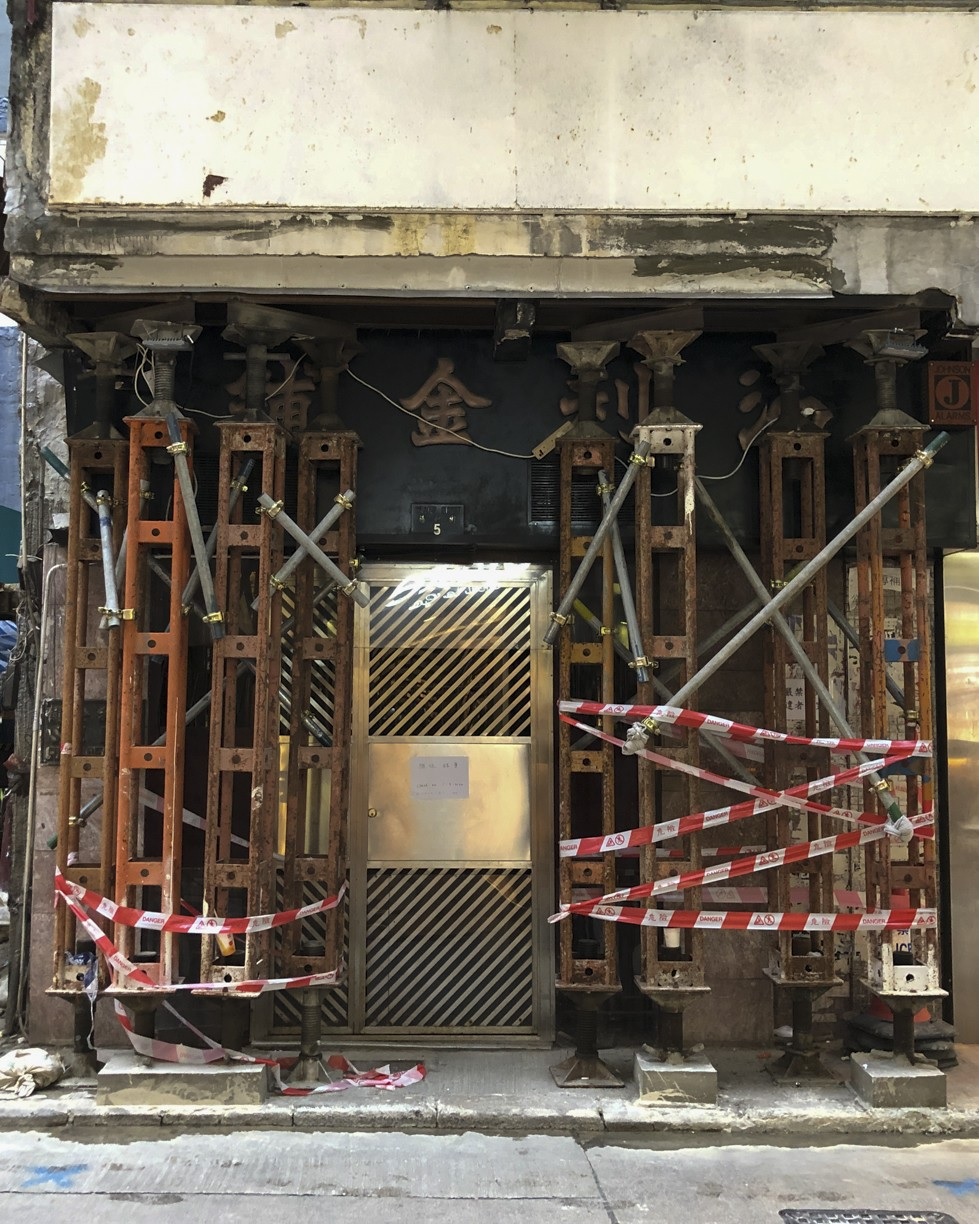Grim daily coronavirus headlines are only the beginning of the bad news for Hong Kong contractors
With the coronavirus dominating world headlines and the focus of governments around the world, contractors will be reaching for their contracts to notify claims for delay, disruption and additional costs. However, many may find themselves out on a limb. In this article, the Contract Dispute team examine the impact of the virus on Hong Kong construction projects to date and the difficulties in recovery under several standard form contracts.
Coronavirus and compensation claims in the Hong Kong construction sector
The COVID-19 virus, also commonly known as the coronavirus, has dominated global news in recent weeks. A contagious virus that can spread from human to human, it can cause respiratory infections that are potentially fatal.
Following the initial outbreak in Wuhan, China, in mid-December 2019, it has since spread to 190 countries around the world registering nearly a million confirmed cases and nearly 50,000 deaths (as of 2 April, 2020). The virus has fast become a public health emergency across many jurisdictions.
In response, emergency measures have been imposed in many countries including strict quarantine measures and travel bans and restrictions. In Hong Kong, the first impacts were felt after Chinese New Year in early February when neighbouring Guangdong Province enforced an extended shutdown of non-essential businesses until 10 February, 2020, restricting the supply of labour, construction materials and equipment upon which the Hong Kong construction sector is heavily reliant.
The World Health Organization (WHO) declared a Public Health Emergency of International Concern on 30 January, 2020 and officially recognized it as a pandemic on 11 March, 2020.

Whilst the spread of the coronavirus appears now to be under control in many parts of Mainland China, further emergency measures to control the spread of the coronavirus are being implemented, on a previously unprecedented scale, elsewhere around the globe. The duration and extent of these measures is uncertain but it is likely that there will be many weeks if not months of disruption to the regular flow of goods and people. The short and long-term impact of the disruption to the normal progress of construction in Hong Kong and elsewhere is as yet unquantifiable. This article aims to briefly summarise the potential adverse impacts from the coronavirus epidemic on Hong Kong construction contracts and potential routes to compensation claims for the main contract types prevalent in Hong Kong. Some of the difficulties of successfully pursuing claims for the pandemic are discussed. The article does not discuss legal issues such as force majeure and frustration, but focuses on contractual remedies and practical issues.
Hong Kong Measures and Impacts
Whilst many construction sites have continued working since the initial spread of the virus in China in early February, the following measures imposed by Hong Kong and Chinese governments have impacted on the construction process:

- All travellers, initially from mainland China but subsequently worldwide, have been quarantined for two weeks with border points between Mainland China and Hong Kong being progressively closed (with only Shenzhen Bay, Hong Kong Zhuhai Macao Bridge and the Hong Kong airport remaining open). All non-resident visitors as well as those travelling from Hubei Province within the last 14 days have been banned from entering Hong Kong from 25 March, 2020.
- Construction site activities and site office operations will be suspended if virus cases are identified, with self-isolation imposed for those who have potentially come into contact with COVID-19 sufferers.
- The People’s Government of Guangdong Province ordered all industries not related to operations of the cities and towns, epidemic prevention and control and daily necessities (such as supermarkets and food production/logistics) to remain closed and not reopen until 10 February, 2020, thereby disrupting and delaying the supply of construction materials and equipment to Hong Kong. This is particularly relevant for concrete and aggregate supply where deliveries from mainland China were suspended. These restrictions are only now gradually being lifted.
- There has been a significant impact on the deeper supply chains in China and subsequently worldwide, but at present the scale of these impacts are still unknown. Whilst some manufacturers have re-opened, they are usually not working at full capacity.
- Special working arrangements have been implemented in all Hong Kong Government departments that encourage staff to work from home where possible and limit non-essential staff attending their usual workplace. In light of a potential “second wave” of both local and imported infections, the government has recently re-instituted a “work from home” order for the civil service. This will likely cause disruption and delays to processing, approvals and inspections by statutory bodies such as the Buildings Department, Drainage Services Department, Highways Department, Electrical and Mechanical Services Department. Delay would likely continue after cessation of the work from home regulations due to the significant backlog of work.
- Additional coronavirus monitoring and control measures on construction sites and offices will increase costs and may cause some interference to normal construction activities.
Contractual Routes to Recovery
Routes to recovery through the various standard contract forms are extremely limited. None of the standard Hong Kong forms provide for direct recovery of time and cost for an epidemic or pandemic. Suspension of the works due to the epidemic by the Contract Administrator, may be recoverable. Contractors may in some cases also be able to pursue claims for the time and cost of the indirect effects of the epidemic. For instance, the reduced working hours of government departments may lead to delays in inspections and permitting.

Contractors may be out on a limb as a result of the coronavirus pandemic
Be aware that the following paragraphs are a brief summary only of the relevant key Clauses for compensation claims due to the coronavirus for some of the prevalent Construction Contracts adopted in HK. These do not include all the necessary Clauses to submit such a claim and do not include project specific Special Conditions provisions which may affect a contractor’s ability to recover.
GCC for Building Works 1999 Edition and GCC for Civil Engineering Works
There are essentially no entitlements to Extension of Time (EoT) and/or associated costs under the GCC that relate to the direct impacts of an epidemic or pandemic on the Works. Note that the Coronavirus does not constitute an Excepted Risk under Clause 21(4). Similarly, whilst Clause 30 requires the Contractor to conform with all Enactments, including amendments, there are no routes to compensation for compliance with such enactments.
However, Government advice or Enactments may be recoverable if pursued as “a disturbance to the progress of the Works for which the Employer is responsible” (50(1)(b)(vii), the Employer being the Government. Similarly, Government advice on working practices (such as working from home or social distancing) where subsequently instructed by the Contract Administrator, could constitute a variation to the Contract under Clause 60(1)(b). This may give rise to entitlements to EoT and costs under Clause 50(1)(a)(iv).

Social distancing and work from home directives may indirectly cause delays
If a site is quarantined due to the epidemic, contractors may be able to pursue a claim for not being given a portion of the site or being deprived of it by the Employer (Clause 50(1)(b)(vi)). Similarly, if a suspension of the works is ordered by the Contract Administrator, a claim under Clause 50(1)(b)(viii) may be possible. However, to date, we are unaware of any projects having been ordered to undergo quarantine or having been suspended due to the virus.
Furthermore, under Clause 50(1)(a)(xi) the Contractor is entitled to an EoT for “any special circumstance of any kind whatsoever”. This could plausibly be used as an avenue to claim for additional time, although prolongation costs would not be recoverable.
However, there are a few potential barriers to recovery under the GCC. Most notably, under Clause 50(1)(ii) the Contractor is not entitled to an extension of time if the cause of the delay is a shortage of Constructional Plant or labour. Shortage of labour has been frequently encountered by numerous projects in the recent months, especially for labour returning to Hong Kong from China after the Chinese New Year holiday. We understand that some sites have experienced large short term labour reductions due to government requirements for workforces to undergo quarantine and isolation procedures. It is arguable that this clause could be used to prevent the Contract Administrator from issuing an extension of time in circumstances where the underlying cause of the shortage of labour is not the contractor’s default, but the government’s necessary enactments to control the epidemic.
Nevertheless, even if this exclusion was deemed applicable, it would still leave open a claim for shortage of materials which, given the lack of aggregate and concrete, could be a useful avenue for some projects. Such a claim could potentially be formulated under the special circumstances clause giving time but no cost. If material, plant or equipment to be provided by the Employer is delivered late, then Clause 63(e) provides for recovery of costs as well.
Aside from direct claims for EOT, another potential route providing protection for contractors is Clause 15 wherein the works shall only be executed “in so far as it is legally or physically impossible“. This clause could cover instances where sites or personnel may be quarantined due to government regulations. In this case, the contractor is excused from executing that portion of the works that is affected by the legal restrictions.
Airport Authority
Similar to the GCC, the General Conditions of Contract for Building and Civil Works for the Hong Kong Airport Authority do not provide a direct route for claiming an EoT for the epidemic and an epidemic is not listed as a Special Risk. However, the HKAA terms do provide a route for recovery through Clause 24 – Compliance with Enactments. The clause requires that the Contractor shall comply with the provision of any Enactment, any condition attached to any permit or exemption issued pursuant to any Enactment and the rules and regulation of Relevant Authorities, and provides that “Any additions or amendment made to the Enactments after the Letter of Acceptance [LoA], which in the opinion of the Project Manager, could not be reasonably foreseen by an experienced Contractor at the date of the LoA that prevents the Contractor from achieving any Stage or Section by the relevant Key Date and had no reason to anticipate, entitles the Contractor to EoT and/or costs.” This would likely cover the impacts of government restrictions on labour movements and lack of materials due to border closures.

However, as with the GCC discussed above, the ability to directly claim for the impact of government enactments is potentially tempered by the restriction at Clause 44.4 stating that the Contractor shall not be entitled to an extension of time if the cause of delay is “the non-availability or shortage of Contractor’s Equipment, Temporary works, labour, utility services or part of the Permanent Works.” Again,it is arguable that this clause could be used to prevent the Contract Administrator from issuing an extension of time in circumstances where the underlying cause of the shortages is not the contractor’s default, but the government’s necessary enactments to control the epidemic.
The HKIA standard form also provides for an EoT and cost where suspension of the works in accordance with Clause 49, 44.3(xii) and 55.1(xii) where such suspension is ordered by the Contract Administrator.
Finally, Clause 7.5 may be provide some relief for late receipt of necessary drawings and /or instructions if the architect, engineer or Employer are operating under “a work from home” or limited hours schedule.
MTR
MTR Conditions of Contract for Civil Engineering and Building Works Construction are one of the few to specifically mention epidemics in the contract. Unfortunately, that is the extent of the good news and this contract is likely the toughest for contractors dealing with the impacts of a global pandemic. Clause 55.1 requires that the Contractor shall carry out and comply with all orders, arrangements and regulations issued by the Government.

There is however, no route under the Contract for recovery of time or cost should those measures negatively impact the progress of the works. Epidemics also do not feature in the Excepted Risks and there is no special circumstances clause. Contractors should therefore work with the Contract Administrator to manage and attempt to mitigate the impacts of the virus and pursue the issue of variations for measures being taken.
Note that whilst the direct impacts of the virus are not covered, the indirect impacts related to statutory inspections (for portions of the works covered by the Buildings Ordinance) may be covered by Clause 74.4. This clause provides relief where the delay in obtaining an occupation permit or approval under the Buildings Ordinance is “the only matter” preventing the completion of the Works or Section of the Works.
Late issue of drawing, instructions or inspections arising from the Engineer working limited hours will be recoverable under Clause 7.4 and late approvals for design data and construction methods under Clause 9.4 and 176.4 respectively.
Finally, if a suspension of the works was ordered by the Contract Administrator due to quarantine issues or due to wider epidemic regulations, the contractor could be entitled to an extension of time under Clause 72. However, here there are also potential limitations in that Clause 72.2(b) precludes the award of an extension of time where such a suspension affects the safety of the Works, and 72.2(c) precludes an extension of time where such suspension is necessary for the safety of the Works. We would consider that these clauses would not apply to instances where the suspension arises from quarantine and disease control as the “safety of the Works” is not at stake.
Conclusion
Whilst work on most construction projects appears to have continued during the last few months, there is likely to have been (and will continue to be) ongoing impacts arising from the restrictions to the free movement of labour, goods and materials both in Hong Kong and the international community.
As can be seen, the recovery of the time and cost impacts arising from the pandemic under the major Hong Kong forms is generally limited. Whilst the government conditions provide a general route to recover time only under the special circumstances clause, contractors may also be able to claim for loss of access to the site or suspension of the works where such measures are instructed by the Contract administrator. However, suspension of the works due to health and safety issues will likely lead to time and no cost. Similarly, all claims for EoT are potentially tempered by the exclusion related to shortages of plant and labour. Where epidemic control measures or government restrictions mean that the contractor cannot legally complete the works, he may be excused from completing that portion of the works which is affected by such restrictions.
The Airport Authority contracts provide a route for recovery of time and cost via a claim for government enactments. Recovery for suspension of the works will also likely lead to an entitlement for extension of time with the caveat that the unavailability of plant, labour and materials may preclude such an EoT. Where limited hours and work from home practices impact upon the issue of drawings or instructions, an extension of time and costs can be recovered.
Finally, the MTR contracts offer no direct routes to recovery but if projects are impacted by late inspections and issue of permits (likely arising out of civil service work from home directives) then recovery of time and costs may be possible. Late issue of instructions, drawings, inspections or approvals arising out of limited working hours can also give rise to an entitlement for extension of time and cost. Similarly delays in approvals from the Engineer and due to suspension of the works may potentially lead to an entitlement for both time and cost. However, this is subject to the potential exclusion for an EoT necessary for the safety of the Works.
Aside from the limited contractual routes, the difficulty for contractors is that to date, the impacts of the epidemic on the works have generally been through reduced access to labour, materials and equipment due to border closures and quarantine restrictions rather than wholesale suspension of the works. The delay impacts of such events are likely to be much more difficult to demonstrate and will rely on accurate record keeping and comparisons through a “measured mile” approach. Such issues are likely to add a further layer of complexity to pursuing claims for the effects of the epidemic.
Need Further Support?

Contractors should remember, individual contracts may be amended by special conditions and that the above advice is only relevant to the general conditions. All claims should be notified in a timely manner in accordance with requirements of the contract and will require the usual demonstration of cause and effect. Any clients seeking more in depth support can contact our team who are available to assist with project specific advice. We wish all of our clients keep safe and well!
